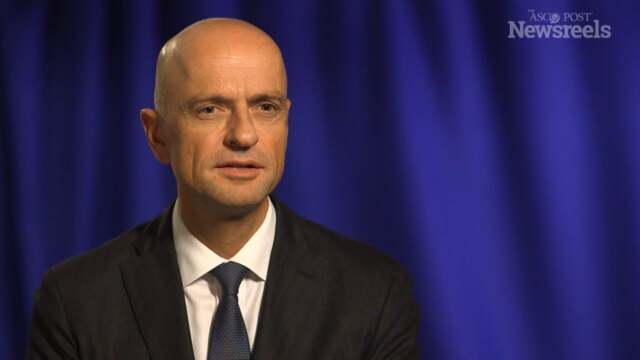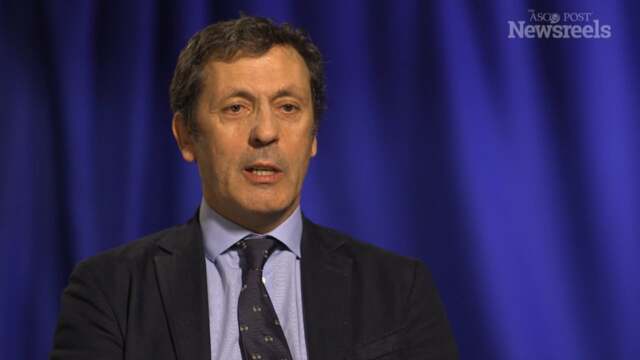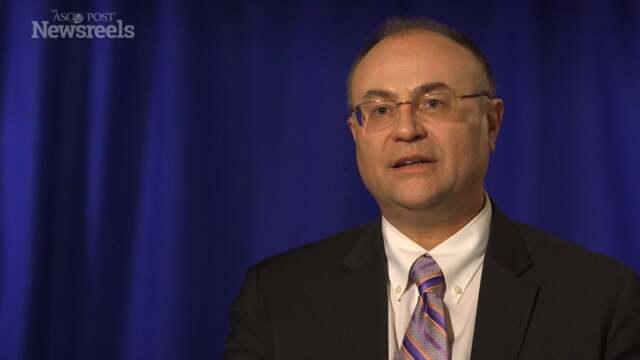Paolo A. Ascierto, MD, on Metastatic Melanoma: Ipilimumab Study Results
2016 ESMO Congress
Paolo A. Ascierto, MD, of the Istituto Nazionale Tumori–Fondazione Pascale, discusses overall survival and safety results from a phase III trial of ipilimumab at 3 mg/kg vs 10 mg/kg in patients with metastatic melanoma. (Abstract 1106O)
Mansoor Raza Mirza, MD, of Rigshospitalet, Copenhagen University Hospital, discusses phase III study findings on maintenance therapy with niraparib vs placebo in patients with platinum-sensitive recurrent ovarian cancer. (Abstract LBA3)
Susana N. Banerjee, PhD, MBBS, of The Royal Marsden NHS Foundation Trust, discusses phase II findings on abiraterone in patients with recurrent epithelial ovarian cancer. (Abstract LBA33)
Martin H. Schuler, MD, of the University Hospital Essen, discusses findings from this phase II trial of epirubicin, oxaliplatin, and capecitabine with or without the antibody IMAB362 as first-line therapy in patients with advanced CLDN18.2+ disease. (Abstract 614O)
Luis G. Paz-Ares, MD, PhD, of the Hospital Universitario 12 De Octubre, discusses in Spanish overall survival data on afatinib vs gefitinib in patients with EGFR mutation–positive non–small cell lung cancer. (Abstract LBA43)
Heinz-Josef Lenz, MD, of the University of Southern California Norris Comprehensive Cancer Center, discusses the importance of tumor location, and its implications for treatment, in right-sided and left-sided metastatic colon cancer.





